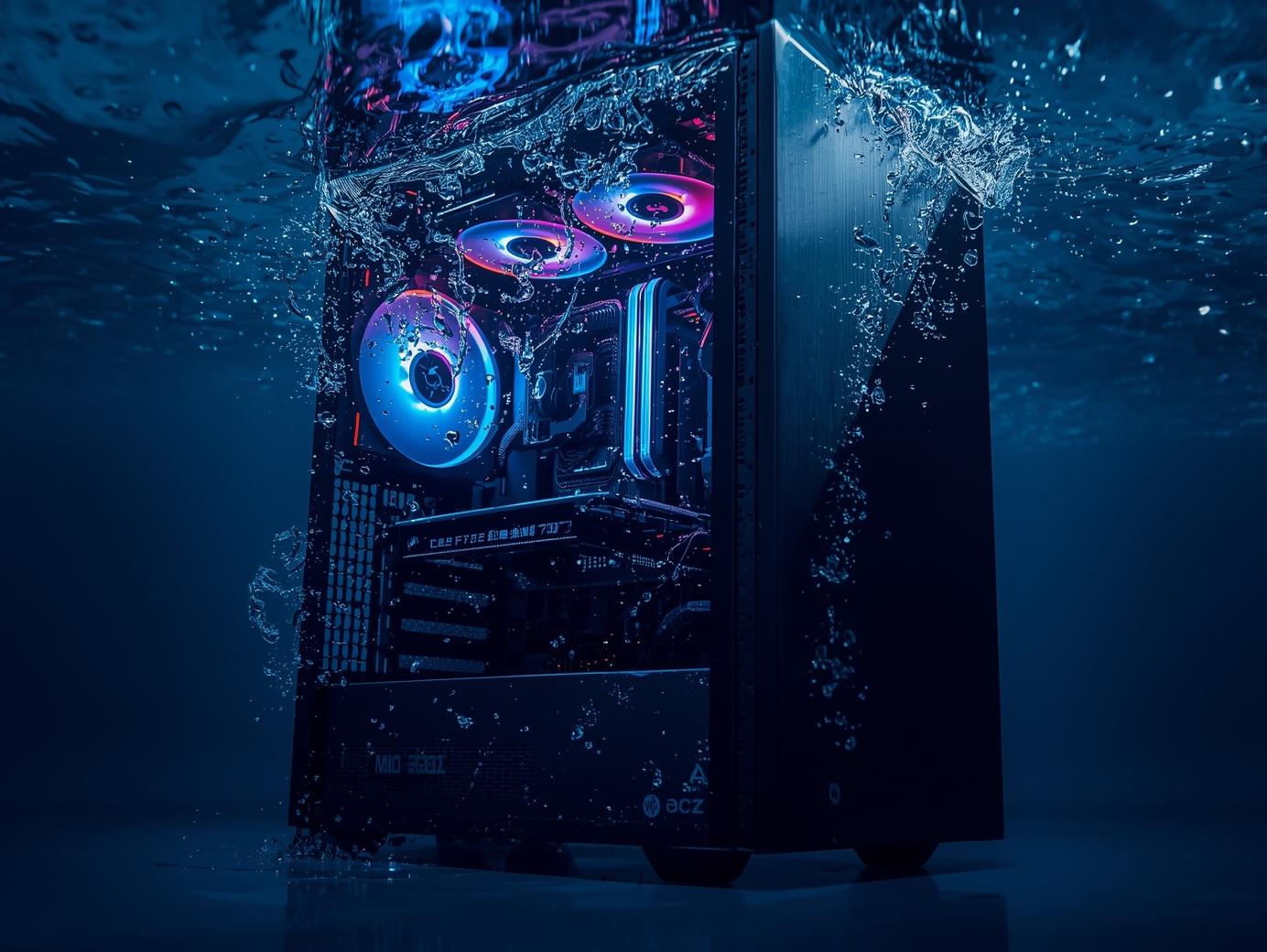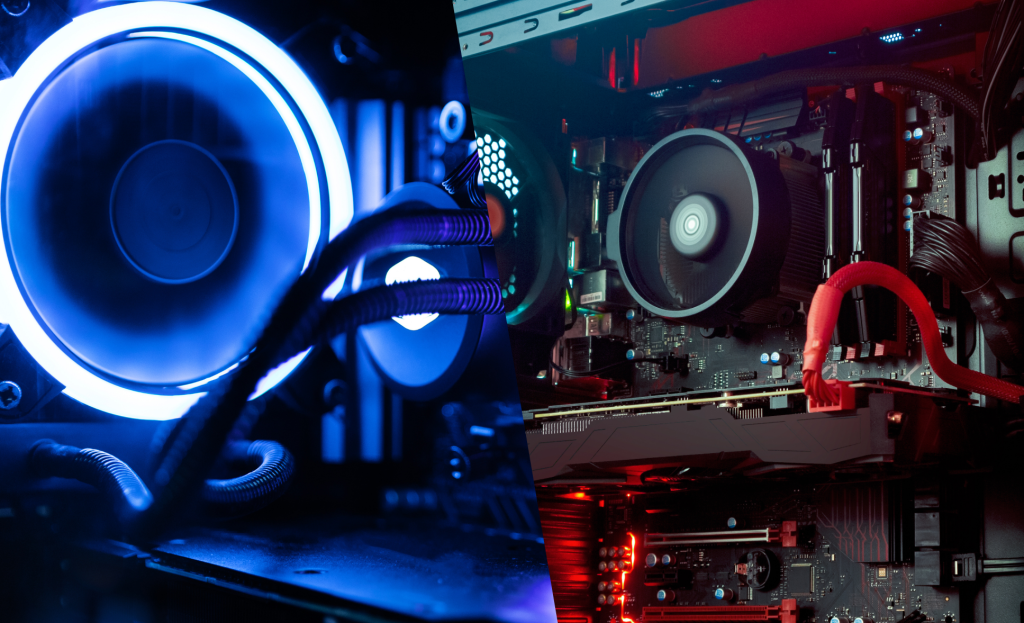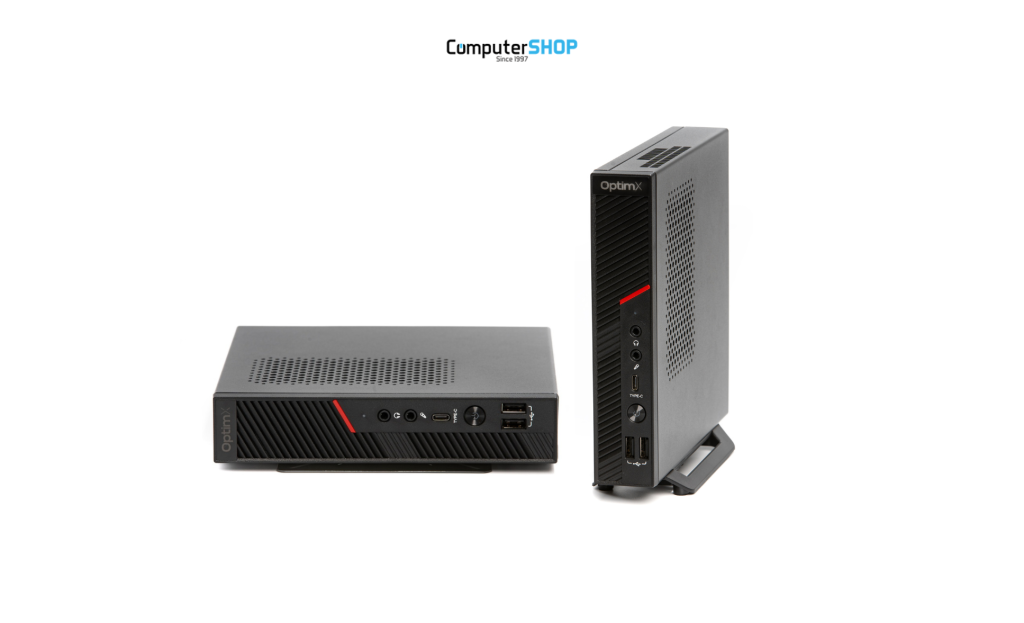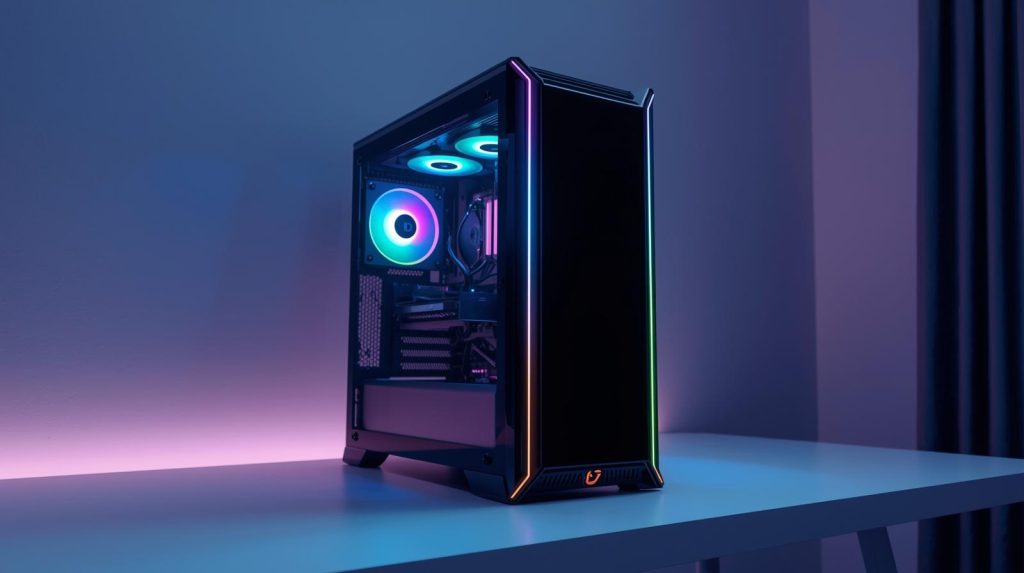
Liquid vs Air Cooling: Which Method Is More Effective?
When it comes to building a gaming PC or high-performance workstation, choosing between liquid cooling vs. air cooling is a crucial decision. Choosing the right method can impact component temperatures, noise levels, and system longevity. In this article, we’ll look at the pros and cons of each method to help you make the right decision.
How air cooling works
Air cooling is the most traditional method and uses fans to move hot air away from the processor and other components.
Advantages:
- Simple installation and lower costs
- Requires minimal maintenance
- High durability and increased reliability
Disadvantages:
- Can be noisier under heavy loads
- Efficiency depends on the airflow in the case
- Performance may decrease with extreme overclocking
How liquid cooling works
Liquid cooling uses a heat transfer fluid, which circulates through tubes and a radiator to remove heat.
Advantages:
- Lower component temperature
- Quieter operation
- Ideal for overclocking and high-end systems
Disadvantages:
- More complicated installation
- Higher cost
- Requires periodic maintenance (fluid check)
Comparison: liquid cooling vs air
| FACTOR | Air cooling | Liquid cooling |
|---|---|---|
| Cost | Low | High |
| Noise | Medium-high | Low |
| Efficiency | Hello | excellency |
| Installation | simplicity | complexity |
| Maintenance | Minimum | Average |
| Overclocking | Limited | Very good |
Liquid vs air cooling – what to choose for your PC?
- For 1080p gaming, multimedia or office: air cooling is sufficient and more economical.
- For high-end systems, 4k gaming or overclocking: liquid cooling offers maximum performance and more stable temperatures.
The choice between liquid cooling vs. air cooling depends on your budget, performance needs, and the level of maintenance you’re willing to put in. Air cooling remains reliable and affordable, while liquid cooling offers significant advantages for gamers and enthusiasts who want cooler temperatures and reduced noise. Ultimately, both options can keep your computer’s components safe if used correctly, but the right choice can take your PC’s user experience and performance to the next level.
Whether you opt for liquid or air cooling, it’s important to choose the right solution for your specific needs. Maintaining optimal temperatures not only extends the life of components, but also ensures consistent performance in games and professional applications, giving you a more enjoyable experience and without thermal stress.









